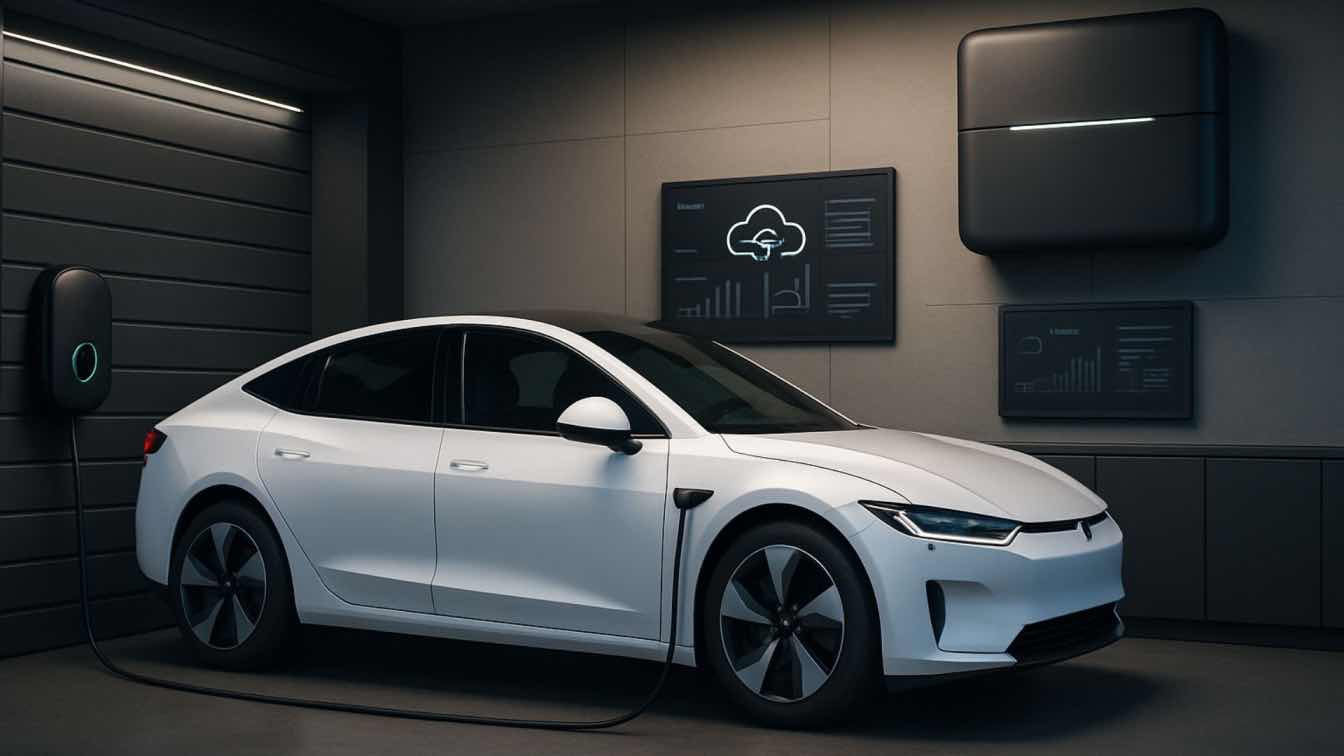Why Smart Garage Design Matters for Electric Vehicles
The number of electric vehicles (EVs) on the road is growing rapidly. Cities worldwide are investing in EV infrastructure, and homeowners are transforming their properties to accommodate the future of transportation. One overlooked yet vital area is garage design. Traditional garages weren't built with EVs in mind. They lack smart features, climate control systems, and space for charging setups.
Smart garage design for electric vehicles isn't a luxury anymore—it's a necessity. A garage should now offer more than parking; it must serve as a functional, safe, and tech-equipped environment to store and charge electric cars. Pairing this setup with a free car report from vininspect.com ensures buyers and owners alike know the full background of the vehicle they're accommodating.
Modern garages equipped with smart garage door openers and EV charging stations are the foundation of a sustainable, connected home. They support convenience, safety, and energy efficiency—essentials for the EV era.
Charging Stations: The Heart of a Smart Garage
Installing Home Charging Stations
The core feature of any smart garage for electric vehicles is the charging station. There are two main types: Level 1 and Level 2 chargers. Level 1 uses a standard 120-volt outlet, while Level 2 requires a 240-volt setup for faster charging.
Proper planning ensures space around the EV charging station remains clear and accessible. The cable should have ample room to connect without tangling or obstructing stored items. Location near the garage door ensures easy entry and exit.
Power Supply and Circuit Considerations
A robust electrical system is crucial. Load management tools help prevent overloads when other systems in the smart home are active. Battery backups and solar panels can add resilience, ensuring uninterrupted charging during outages.
Efficient electrical planning supports both current and future EVs, allowing for expansion without costly rework.
Smart Garage Door Openers for Convenience and Security
Features of Smart Garage Door Systems
Smart garage door openers go far beyond remote buttons. Modern models integrate with smartphone apps, offering remote access, real-time monitoring, and scheduling features. These smart systems can open or close the garage door automatically, reducing human error and enhancing security.
Systems often include cameras, motion sensors, and voice assistant compatibility. Users receive alerts if the garage door is left open or tampered with. For electric vehicle owners, syncing the opener with charging times enhances convenience.
Benefits for EV Owners
Safety is a concern when charging electric vehicles in enclosed areas. Smart garage door openers improve airflow and lighting while ensuring the space remains secure. Owners can schedule the garage door to open just before departure, maintaining efficiency and comfort.
Modern Garages: Designing for Form and Function
Aesthetic Meets Technology
Modern garages aren't just functional; they're visually appealing. Sleek LED lights, smooth finishes, and integrated smart technology create a clean, organized environment. These touches elevate the entire home.
Climate control systems keep the temperature stable, which protects both the EV battery and any stored items. Well-designed ventilation reduces humidity and prevents electrical component degradation.
Storage and Layout Tips
An efficient smart garage includes storage zones for tools, accessories, and EV parts. Wall-mounted racks and modular cabinets keep floor space open for parking and movement. Zones for workout equipment or hobbies enhance multi-use potential.
The layout should prioritize accessibility to charging stations and visibility for smart sensors.
Future-Proof Your New Garage with Smart Technology
Key Smart Garage Features to Include
1. Motion-activated lights
2. Smart locks on access doors
3. Integration with other smart home devices like thermostats and security systems
4. EV charging automation through smartphone apps
Smart garage features simplify life while ensuring energy efficiency and security.
Planning for Future EV Upgrades
A new garage should accommodate potential needs. More families will own multiple EVs, so space for a second or third EV charging station is vital. Consider roof-mounted solar panels and dedicated battery storage.
Future-proof setups allow easy expansion, so the garage evolves alongside automotive technology.
Upgrading an Existing Garage vs. Building a New One
Retrofitting older garages can be cost-effective, especially when space is limited. Adding insulation, smart garage door openers, and updated wiring can transform outdated spaces.
However, building a new garage allows full integration of smart systems from the start—ensuring optimal efficiency, space, and functionality for electric cars and charging stations.
Sustainable Choices for Smart Garages
Eco-conscious construction is increasingly important. Sustainable garages use recycled materials, low-energy lights, and efficient insulation to reduce environmental impact.
Solar panels on the roof can power EV charging and other smart garage systems, reducing dependence on the grid. Efficient lighting and smart climate control systems help lower energy bills and increase value.
Final Thoughts: The Value of a Smart Garage
A well-designed smart garage enhances property value, boosts safety, and supports the growing demand for electric vehicles. It's a space designed not only for parking but for integration, charging, and storage—all built with the future in mind.
Equipping garages with EV charging, smart garage door openers, and remote access technologies isn't optional anymore. It's a must-have for every homeowner looking to stay ahead in a world where EVs are the standard.
FAQ
1. What features should a smart garage have for electric vehicles?
EV charging stations, smart garage door openers, motion lighting, and climate control.
2. Can I add a charging station to my existing garage?
Yes, most garages can be retrofitted with EV charging equipment and updated wiring.
3. How do smart garage door openers work with EVs?
They automate access and improve security, syncing with schedules and charging times.
4. What’s the cost of building a new garage for EVs?
Prices vary but average between $15,000 and $35,000, depending on features and location.
5. Are smart garages worth the investment?
Yes. They increase home value, improve safety, and offer unparalleled convenience for EV owners.





